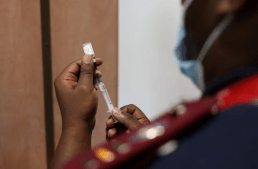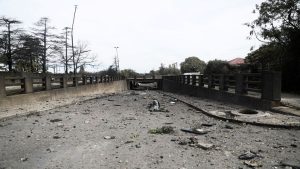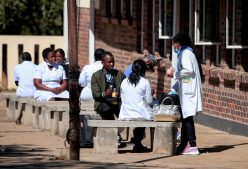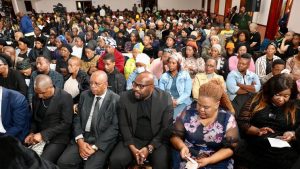The Democratic Nursing Organisation of South Africa (Denosa) has written an open letter to the Presidency, calling for an intervention on the “devastating plights of frontline health workers.” The organisation says the COVID-19 pandemic has had devastating effects on nurses.
Denosa reflects on challenges faced by nurses:
The organisation’s president Simon Hlungwani says in a statement that the devastating effects have been brought on nurses because they work for government.
“More than 27 300 healthcare workers have contracted the virus and, of this, no less than 240 have died. This is out of the total of over 640 000 infections recorded in South Africa.”
Hlungwani says despite the challenges, nurses have dedicated themselves to their work selflessly.
He says many countries have acknowledged the dedicated hard work by healthcare workers and as a result, have implemented the following changes:
- Ghana gave healthcare workers tax breaks for three months starting from in April.
- The Zimbabwean government started to pay healthcare workers a Covid-19 risk allowance;
- The State of Louisiana in the US has passed legislation giving healthcare workers who were on the frontline in fighting Covid-19 a rebate of $250.
However, the script in South Africa has been different.
“In South Africa, Mr President, the environment is completely different. It has been six months since government has defied paying public servants their salary adjustment for the 2020/2021 financial year in line with Resolution 1 of 2018 that was signed at the PSCBC between labour unions and government. The costs of living and of goods and services rose by far more than CPI already in the country,” Hlungwani wrote.
Salary increases
Denosa says the government was supposed to increase the salary of public servants on 1 April 2020, but has failed to do so. Public servants, however, continue to do their work despite the absence of the salary increases, severe shortages of staff and equipment.
“Even with greatest feelings and willingness to remain optimal in service, there comes a time when nurses will not be able to do the work they are so passionate about because of lack of means, power and ability to do so. They can no longer borrow money for their transport fare to and from work. They can no longer borrow money for their lunch and to augment their budgets for milk, medical aid and shelter. They are not volunteers, and they do their work that they must be paid for,” Hlungwani wrote.
The organisation says it will approach the Labour Court as the third channel to ensure that workers receive their salaries.
“The first two avenues, the dispute resolution processes within PSCBC, namely 1. Conciliation and 2. Arbitration, have not yielded anything after months and months of endless delaying tactics by government.”
Difficulties faced by nurses
The organisation has asked the government to intervene in difficulties faced by nurses in the dichotomous environment they work in. These include the following:
- The collective bargaining platform is the only way that nurses can get their bread and butter issues addressed.
- Nurses have sacrificed with their lives acquiring HIV, XDR, TB, Ebola (one case) and now COVID-19 in the line of duty. Meanwhile, health workers not belonging to government departments other than health get both danger allowance and full uniform for executing their duties
- Nurses work with insufficient and poor quality PPE.
- Long hours of work without overtime payment.
- Shortage of human resources, leaving staff working on skeleton levels at the time when we have long queues in facilities.
- A persistent shortage of equipment and medication.
Below is the full statement by DENOSA:






